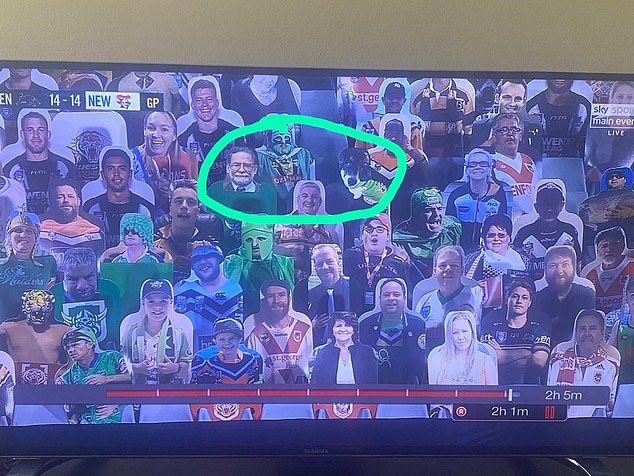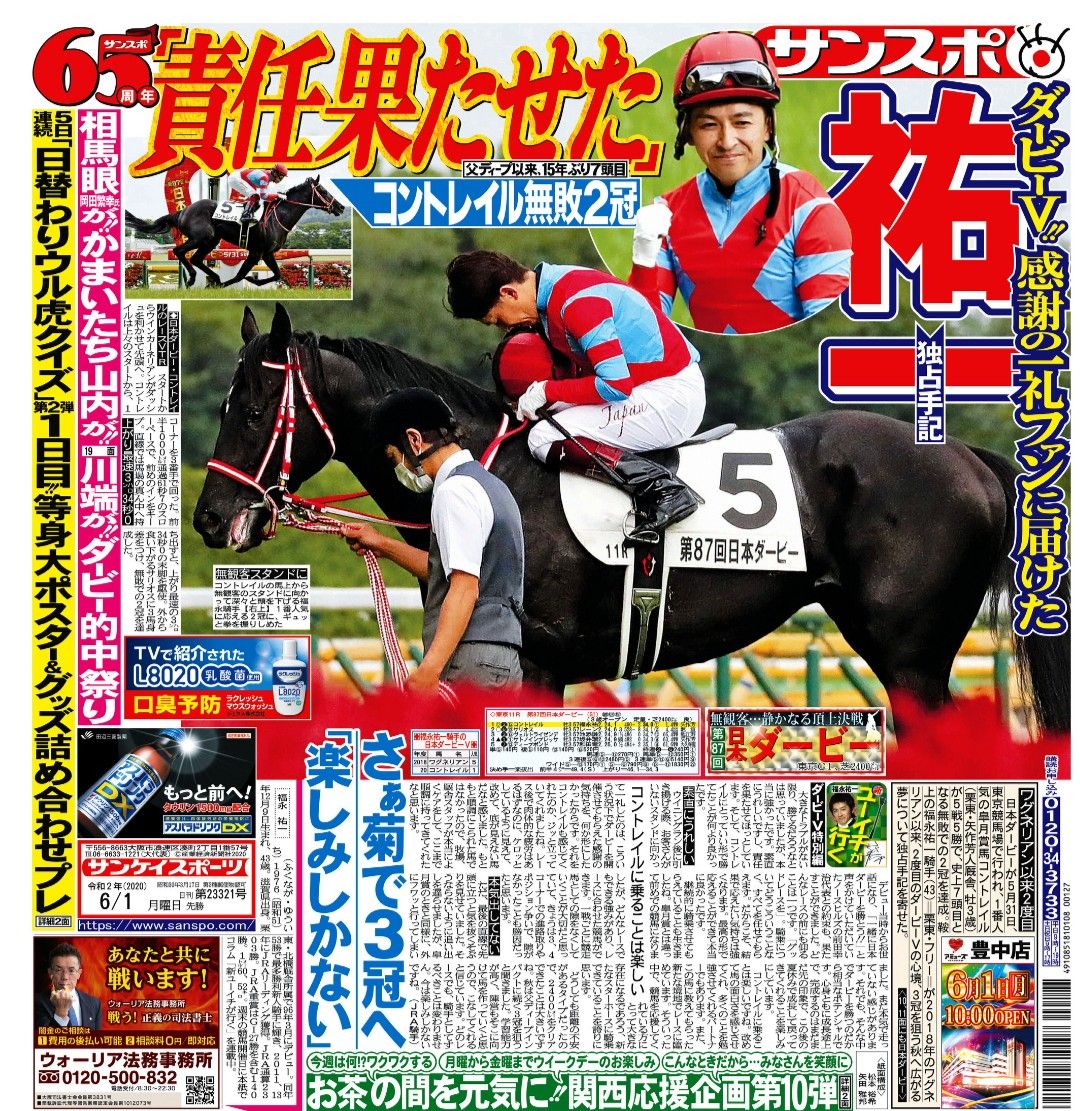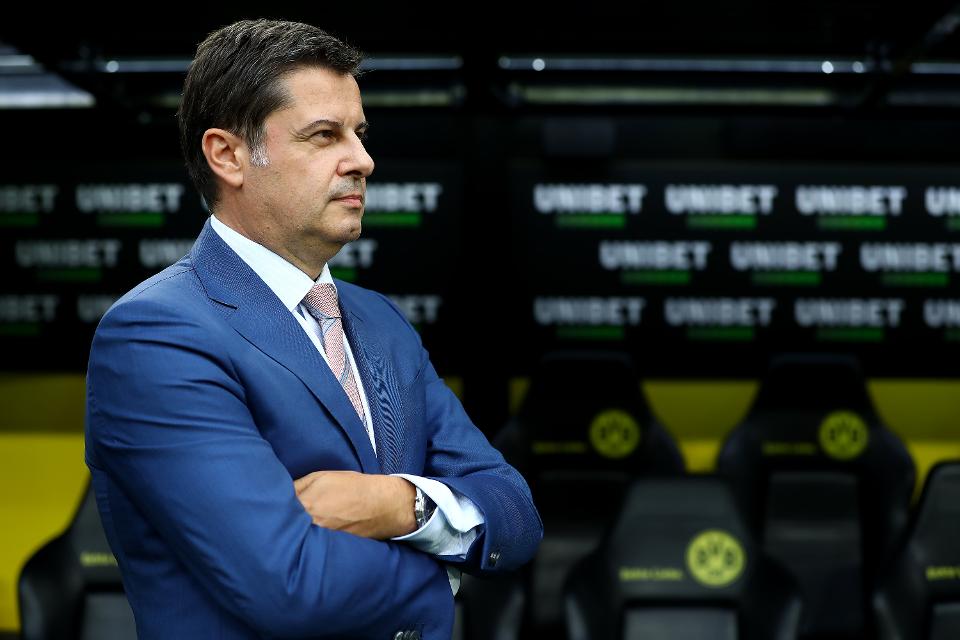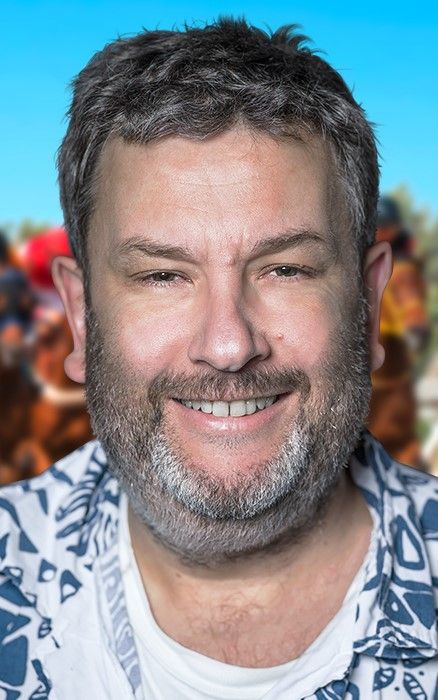Welcome to those news stories that crossed our desk and which collectively prompted us to smile, sometimes laugh or even draw in a sharp breath or two. If there are stories you would like to share with a wider audience feel free to send through them through to journal@daimani.com
1. Where does this end?
The National Rugby League resumed competition in Australia last Thursday and one of the elements that the NRL included in their post-coronavirus offer to fans was the ability for fans to upload their picture and appear as a cardboard cutout in the stadia for AU$ 22.
This was how NRL broadcast partner Channel Nine explained the initiative along with the NRL’s director of marketing.
For those absolutely exhausted by the psychodrama of the British prime minister’s advisor Dominic Cummings and his mysterious journeying around the country in the midst of the lockdown, there was tremendous amusement in Twitter and Facebook-land that someone had paid for the mysterious Cummings to appear at the Bankwest Stadium for the Sydney Roosters’ match against South Sydney Rabbitohs, see below.

Inevitably it went darker from there.
On Sunday, in the Campbelltown stadium, during a tense 14-all draw between the Penrith Panthers and the Newcastle Knights, the face of mass murderer Dr Harold Shipman appeared as a cutout, see below.

Although Shipman was convicted of murdering only 15 people a subsequent inquiry showed he may have been responsible for as many as 215, mostly elderly women. This makes him the UK’s most prolific serial killer. By far.
Bizarrely, it got even worse: also yesterday retired rugby league legend Matty Johns, who has a programme on Fox Sports, the NRL’s pay-TV partner, had an Adolf Hitler cardboard cutout made up. His show then filmed a segment that suggested the Hitler cutout was attending one of the NRL matches [it never did, despite how it looked when it went to air].
Needless to say, the reaction was poor and Johns has since apologised profusely.
It's not a good look, as they say in Australia.
2. Pacific rugby players to the rescue
The case of former British Army veteran Taitusi Ratucaucau is a grim reminder of the power of the bureaucracy to grind down people’s lives, that readers of Frank Kafka would understand.
Ratucaucau, who was born in Fiji, and fought in Iraq and Afghanistan in the Royal Logistics Corp has lived in the UK since leaving the army in 2011. Like many Commonwealth veterans before him, he alleges that when he left the Army the process of applying for UK citizenship was not properly explained to him, and he never applied.
He collapsed earlier this with what was diagnosed as a brain tumour and once this was removed faced a £27,000 NHS hospital bill for lifesaving surgery. His immigration status meant he was not eligible for NHS treatment. On top of the cost of the surgery, there’s an additional £10,000 needed to regularise his status and that of his wife and three children.
A number of organisations and individuals responded to Taitusi’s situation with the generosity one would expect. But the group that raised by far the largest amount of money is called the Pacific Rugby Players Welfare, a London-based organisation that offers career advice and counselling to the many professional rugby players of Pacific Island heritage who play in Europe. The PRPW has around 700 members, split roughly equally between the island countries of Fiji, Samoa and Tonga.
The PRPW launched their appeal to family and friends in their membership, and the wider supporters of Pacific Island rugby, only 14 days ago. The initial appeal was for only £5,000 but that was smashed quickly, and so reset to £7,000, smashed …. And so it went on. The amount they have raised now stands at a little under £25,000 from over 980 individual donations.
The CEO of the PRPW is Daniel Leo, the former captain of the Manu Samoa national team and, on the rugby field anyway, there’s the most intense rivalry between Fiji and Samoa.
At a meeting over the weekend in London’s Regent Park, Taitusi was able to meet his daughters Lilieta, 13, Nai, 11, and Siteri, 10, for the first time since being released from hospital. The girls and their father broke down in tears as they hugged each other. ‘I’m in tears after I saw them,’ he said, sitting with the girls on a park bench. ‘Before the operation I was thinking about my family, “what are they thinking” when I have this operation,’ he told the Times.
A reader of the Times has also contacted the newspaper to offer Taitusi rental accommodation for a year free of charge.
And when Taitusi met Dan Leo at the same family reunion, see below, the Fijian former soldier on the right said to the Samoan Test veteran on the left, ‘Leo, I’ve been dying to know why you did this for me ... I watched your rugby career closely and I only ever saw you fighting with Fijians!’
When a veteran faced a £27,000 NHS Bill after life-saving emergency surgery, it was former rugby player @danleo82 & the public that helped him, not the government.
— ITV London (@itvlondon) June 1, 2020
Mr Ratucaucau told @Antoinespeaker about his & other Commonwealth soldiers' visa struggleshttps://t.co/yAmkwpYiiJ pic.twitter.com/WTk6QiME0z
3. Class act as Japanese Derby-winning jockey celebrates the ‘missing fans’
In the end it was only to be expected. Contrail was the heavy favourite going into this past weekend’s 87th running of the Tokyo Yushun or Japanese Derby and had not been beaten in five starts since his debut as a two-year-old. And the heavy favourite did not disappoint, pulling away from the 18-horse pack for a three-length win and the lion’s share of the total prizemoney of US$ 4m.
Contrail now adds the Derby to the first leg of Japanese racing’s Triple Crown, the Satsuki Sho (Japanese 2000 Guineas) and has become the first horse since his sire, Deep Impact, achieved the same thing 15 years ago. Contrail’s next target is the Kikuka Sho (or Japanese St. Leger over 3,000m) which takes place in October with the hope that the colt could become only the eighth Triple Crown winner in Japanese Racing Association history.
Obviously this was a Japanese Derby that had to be run behind close doors because of the coronavirus. Although the fans and ‘super fans’ were not present [the Derby day record remains just over 196,000 set in 1990], there was little impact on the all-important betting turnover: the yen equivalent of US$ 217m for the race, and US$ 347m for the raceday.
Perhaps the classiest touch of the day belonged to Contrail’s jockey Yuichi Fukunaga, who also won this race in 2018, and was determined not to forget the absent fans.
Normally the stands would be filled with 100k+ fans on Derby day, empty this year but Yuichi Fukunaga didn't forget us #fans #classact pic.twitter.com/x5lXNyfUe5
— G (@LongBallToNoOne) May 31, 2020
Fukunaga’s touching gesture also earned him the front page in the leading daily newspaper Sankei Shimbun, see below.

4. Dana White vs Facemasks
It was a victory for Ultimate Fighting Championship (UFC) president Dana White that he was able to convince the Nevada State Athletic Commission to allow the UFC’s ‘Sin City’ card featuring Woodley vs Burns to be staged in Las Vegas.
But would White himself be watching the action from his usual cageside seat?
No. For one of the NSAC’s conditions was more stringent protocols to prevent the possible spread of coronavirus. All UFC fighters, corners, and staff had to wear masks at all times during fight week.
But although White was happy to sign up his UFC to those safety protocols, he himself was not willing to carry out the extra safety measures, and is believed to have watched the whole card from the comfort of nearby offices. This shouldn’t come as a surprise since he has already dared coronavirus to infect him.
Despite White’s refusal to wear a mask he did get tested for coronavirus which is another non-negotiable aspect of the UFC’s coronavirus protocol.
5. Bundesliga boss gets the full love of WSJ
Over the weekend there was a very generous and appreciative profile of Christian Seifert, the CEO of the Deutsche Fußball Liga and his organisation’s recent skilful relaunch of the top two tiers of German football, the first significant team sport to restart after the coronavirus.
Two competition rounds have been completed meaning there are still seven to go, hopefully with a completion in late June. Seifert’s insights are interesting. He admits nearly everything needs to go right every single day.
‘It’s like starting a new season on a weekly basis,’ he told the WSJ. ‘We do not know right now if corona wins in the end.’

That the Bundesliga has been successful thus far has paved the way for the women’s Bundesliga to restart next weekend; the German basketball league will play an eight-team tournament in Munich next month.
Seifert says he has been fielding a lot of calls from teams and leagues facing a similar situation, including the major U.S. sports leagues. His management advice is very simple: ‘You need to act very, very fast.’
But Seifert was also thankful that the problems that fell to him and his colleagues to solve were happening in Germany and not somewhere else. The country’s health-care system successfully stayed on top of the virus which meant a re-started Bundesliga was not going to divert resources from medical workers. Plus, all 36 of its clubs in the top two tiers were on the same page, unlike for instance the Premier League. As Seifert put it, the Bundesliga never ran into a situation where a third of the teams wanted to play, another third didn’t, and the final third was threatening to sure
‘Lucky us, we’re living in a country with a very effective medical infrastructure, with good political management,’ he said. ‘It was unreal eight weeks later when we were able to come back again.’


